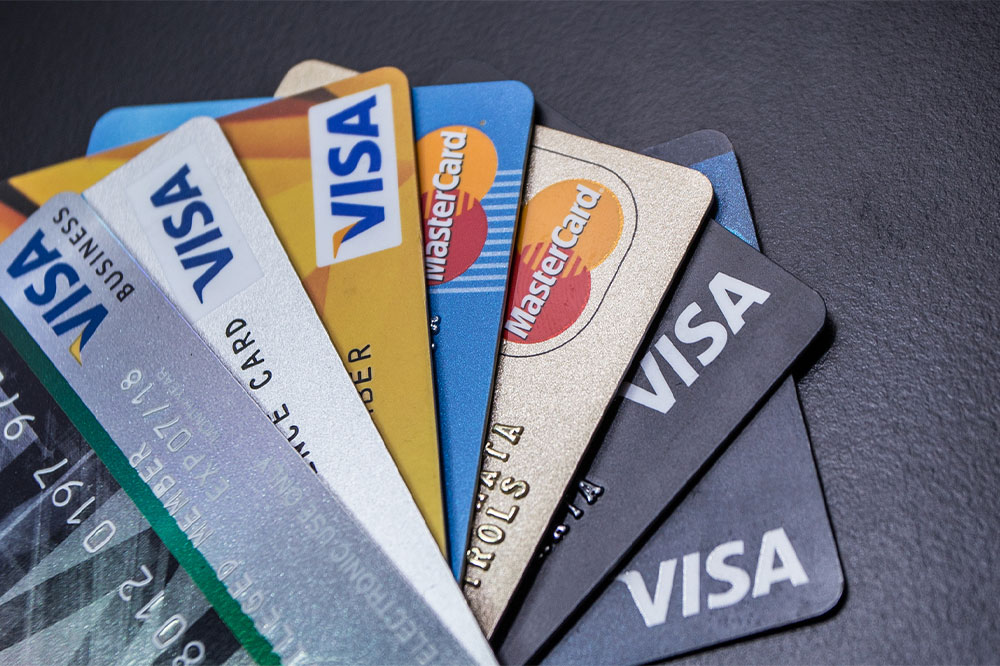A Comprehensive Guide to Credit Cards: Types, Benefits, and Essential Tips
This comprehensive guide explores the different types of credit cards, their benefits, and practical tips for maximizing usage responsibly. Learn about unsecured, student, balance transfer, rewards, and business credit cards, along with strategies to improve your credit score, avoid debt, and leverage card perks effectively. Whether you're new to credit or looking to optimize your existing cards, this detailed article provides valuable insights for smarter financial management and building a strong credit profile.

Understanding Credit Cards: Types, Advantages, and Essential Tips for Smart Usage
In today's financial landscape, credit cards have become indispensable tools that offer convenience, security, and numerous benefits. With a vast array of credit card options available from banks, financial institutions, and card providers, understanding the nuances of different card types and how to leverage them can significantly enhance your financial management. Whether you're a seasoned credit user or a beginner, grasping the fundamentals of credit cards, their advantages, and practical tips for responsible use is essential for building a solid credit history and maximizing benefits.
What Is a Credit Card?
A credit card is a financial instrument issued by a bank or financial institution that allows you to borrow funds to make purchases or withdraw cash up to a predetermined credit limit. This revolving line of credit provides flexibility, letting you access funds conveniently without carrying cash. At the end of each billing cycle, the issuer provides a detailed statement listing all transactions, payments, and the outstanding balance. The key aspect of credit cards is the ability to pay back borrowed amounts over time, either in full or gradually, with interest applied to unpaid balances.
Repayment options are flexible: you can settle your balance in full each month to avoid interest charges or carry over the remaining balance, which accrues interest. Responsible management of credit card repayments can help build or improve your credit score, opening doors to better financial products in the future.
Different Types of Credit Cards
Unsecured Credit Cards: These are the most prevalent type of credit cards, issued without requiring collateral. Approval depends largely on your creditworthiness, and responsible use can help you establish or improve your credit profile.
Student Credit Cards: Specially designed for college students or young adults with limited or no credit history, these cards generally feature lower credit limits, educational resources, and rewards tailored for young consumers. They help students start building credit early and learn responsible borrowing habits.
Balance Transfer Credit Cards: These cards are ideal if you're looking to consolidate high-interest debt. Offering 0% introductory APR for periods typically ranging from 12 to 21 months, they enable users to transfer existing balances and pay down debt without incurring interest, thereby saving money and accelerating debt repayment.
Rewards and Incentives Credit Cards: Designed to reward everyday spending, these cards earn points, miles, or cashback on purchases. They are perfect for consumers who pay their balances in full each month and want to maximize their rewards for travel, shopping, or dining.
Business Credit Cards: Geared towards small business owners and entrepreneurs, these cards offer features like expense tracking, rewards tailored for business needs, and higher credit limits. They help manage business expenses and separate personal and business finances efficiently.
Effective Tips for Applying for a Credit Card
Before applying, assess your credit score, financial goals, and current financial situation. Pre-approval processes can provide insight into your chances of approval and help you select the right card. When applying, ensure that you understand the impact on your credit report and avoid multiple simultaneous applications, which can lower your credit score.
Strategic planning of your payments—such as paying more than the minimum or paying in full—can help you avoid costly interest charges and debt accumulation. Also, choose a card issuer that offers features aligning with your needs, like low fees, travel benefits, or cashback rewards.
Maximizing the Benefits of Your Credit Card
Use your credit card responsibly to build a positive credit history. Timely bill payments are crucial and also help you qualify for better loan rates in the future. Take advantage of reward programs, Cashbacks, and discounts offered—these benefits can significantly Offset your expenses.
Understand your card’s features thoroughly, including interest rates, annual fees, foreign transaction fees, and any balance transfer options. Leveraging promotional features like 0% interest periods on purchases or balance transfers can enhance your financial flexibility.
The Benefits of Responsible Credit Card Usage
Beyond convenience, credit cards provide a safety net in emergencies, such as interest-free cash withdrawals and fraud protection. Many cards come with additional perks like travel insurance, purchase protection, and extended warranties, making them invaluable financial tools.
Before choosing a credit card, carefully review all the card’s features, costs, and benefits. Reading the fine print and clarifying any doubts with your card issuer can ensure you make an informed decision tailored to your financial needs.





